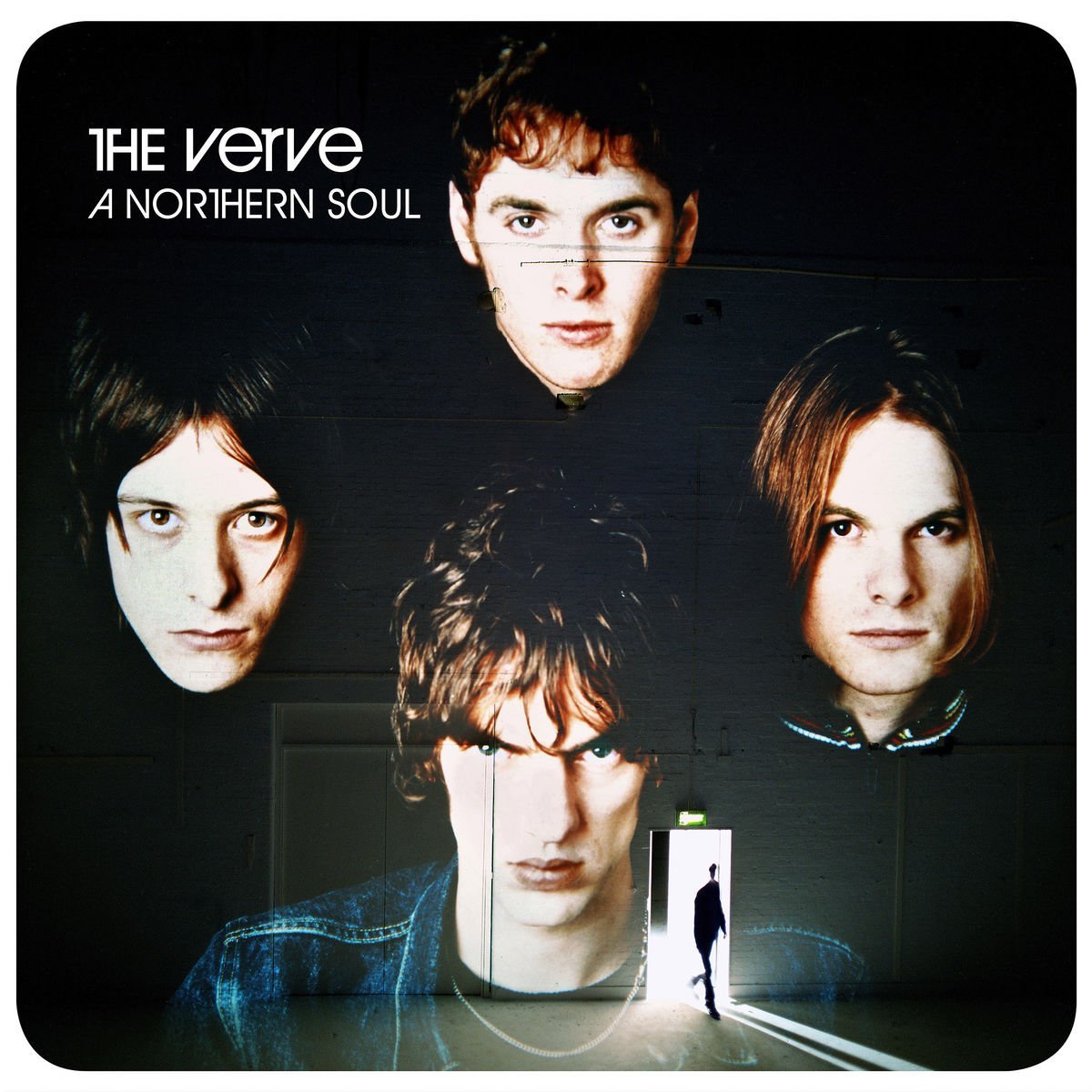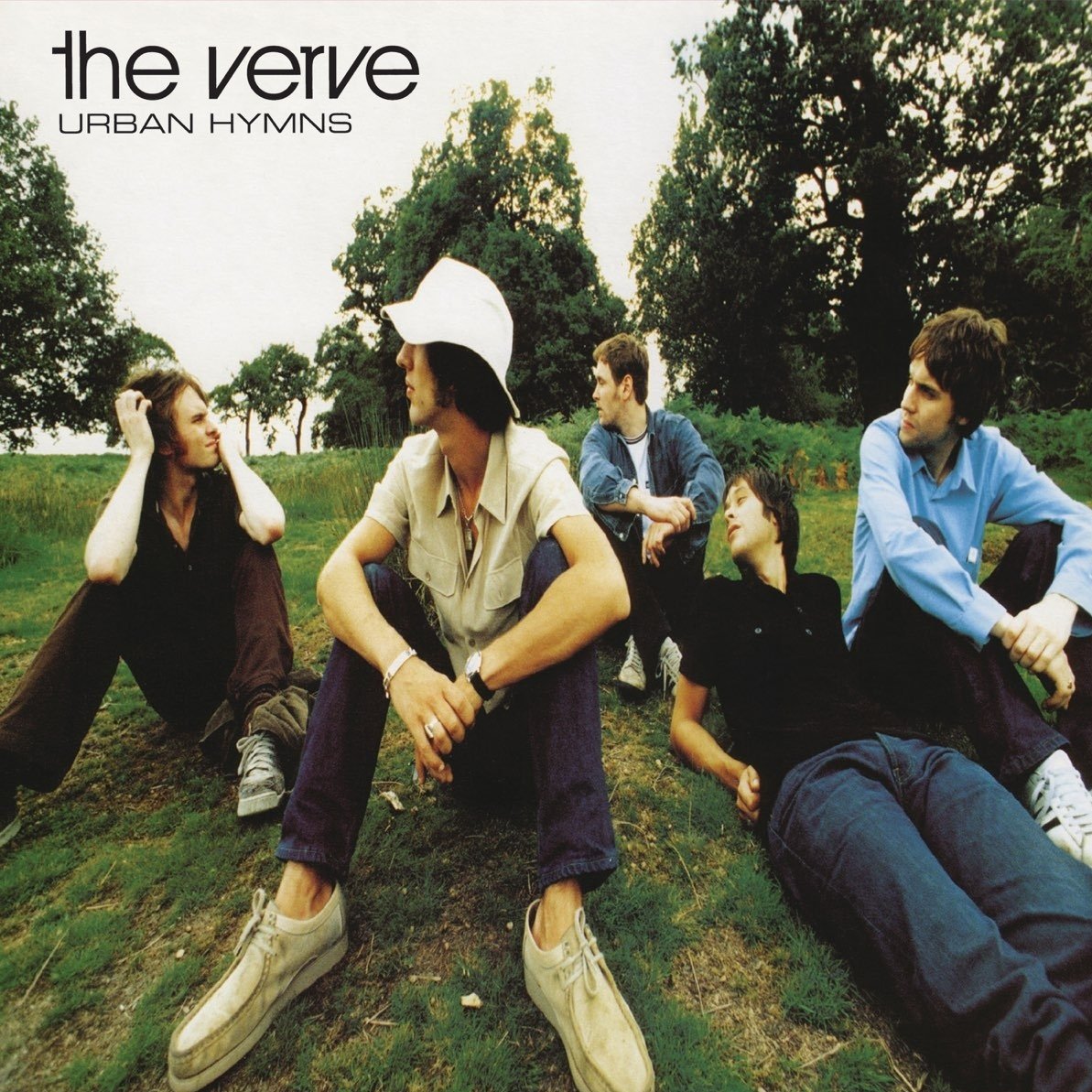Happy 30th Anniversary to The Verve’s debut album A Storm In Heaven, originally released June 21, 1993.
You can be forgiven—particularly if you reside on the west side of the Atlantic—if you’ve ever assumed that Urban Hymns is The Verve’s first album. Its ubiquity upon its release in early autumn 1997, driven in large part by its most recognizable (and controversial) anthem “Bitter Sweet Symphony,” formally introduced the Wigan, England bred band to a broader, global audience of eager ears.
But The Verve’s career narrative commences some seven years prior to Urban Hymns’ arrival, when Richard Ashcroft (vocals), Simon Jones (bass), Nick McCabe (guitar), and Peter Salisbury (drums) joined creative forces and destinies in 1990. Originally known simply as Verve before the famed jazz record label of the same name took umbrage with the band’s moniker, forcing their hand to change it to The Verve, the foursome cultivated a uniquely experimental and unconventional sound, driven in large part by McCabe’s sprawling, multi-textured guitar work coupled with Ashcroft’s ruminative lyrics.
By the time the group signed with Virgin Records subsidiary Hut Records in September of 1991, the four Northern England souls had already built a solid reputation within the Wigan and surrounding music scenes for crafting spaced-out, atmospheric jam tracks that relied more heavily on reverb-steeped improvisation than conventional rock song structures. The magnetic force of Ashcroft’s charismatic, and at times cantankerous, persona also aided the burgeoning mystique surrounding the band. "Their demo was so much better than anything else I was hearing," Hut A&R executive Miles Leonard recalled to Select magazine in 1998. "I saw them at The Boardwalk and Richard was already a complete star. The band was so innovative."
Following the unveiling of a handful of well-received singles that culminated with the release of their eponymous EP in late 1992, the band entered the studio to record their first full-fledged long player. Overseeing the recording sessions at Cornwall’s Sawmills Studios was the accomplished producer John Leckie, whose deep resume includes notable production oversight for three seminal British debut albums—XTC’s White Music (1977), Simple Minds’ Life in a Day (1979), and The Stone Roses’ eponymous The Stone Roses (1989) —as well as Radiohead’s sophomore effort The Bends (1995).
Watch the Official Videos:
Having worked with some of the most revered bands in the UK, one may have assumed that Leckie would be jaded or strictly workmanlike when confronted with the prospect of orchestrating Verve’s first LP. But his attitude and giddy excitement proved the furthest thing from indifference. "I (was) blown away by Verve,” Leckie confided to Select. They were unlike anything I'd heard before, this incredibly intense but sensitive sound—quite overwhelming but, at the same time, incredibly touching. I started following them around as a fan."
Completed in less than two months, and the result of Leckie maximizing the band’s core strengths at the time, A Storm In Heaven features a tightly sequenced, intoxicating mix of ten songs that, even a quarter decade later, have the enduring power to drift in and out of your consciousness, long after you’ve lifted the needle from Side B. Purposefully not configured to secure radio airplay in favor of showcasing the band’s musical prowess, these are songs best experienced with headphones firmly affixed and the lights in you room dimmed or turned off altogether.
The first of the two singles selected by Hut for official release six weeks prior to A Storm In Heaven making landfall, the inspiration behind the grinding “Blue” is open to interpretation, but Ashcroft’s words seem to contain a thinly veiled reference to ecstasy, as he reflects, “Blue I’ve got a question every time I hold you / Yeah, Blue. I’ve got a question every time I swallow you it’s true.” Second single and ode to escapism “Slide Away” remains the supreme standout of the entire affair, as Jones’ opening bassline prefaces McCabe’s enveloping guitar play, with Ashcroft’s vocals floating within, not above, the shimmering soundscape.
Other memorable moments include the hypnotic, dream-like haze of opener “Star Sail,” the swirling head-trip of “Beautiful Mind,” and “The Sun The Sea,” the album’s most blistering straight-ahead rocker, replete with saxophone flourishes in the song’s latter third segment and Ashcroft’s most crystalline vocal performance which teems with sexual innuendo.
A Storm In Heaven’s more subdued, ambient moments offer plenty to relish, beginning with “Already There,” which finds Ashcroft examining the quest for enlightenment through wild-eyed experience and the power of song, as he reflects “You better pray when the music stops / And you're left alone in your mind / 'Cause I'll be hearing music till the day I die.”
Enjoying this article? Click/tap on the album covers to explore more about The Verve:
A come-down anthem if there ever was one, “Make It ‘Til Monday” explores a weekend spent tripping and wondering if you’ll pull through the drug-fueled fog to see the new week beckon. The piano-driven closer “See You In The Next One (Have A Good Time)” recalls someone departed, whether a lover or, as some have posited, sung from the perspective of Ashcroft’s mother about his father, who passed away when he was a young boy.
A masterclass in bridging the gap between the dissonant and the melodic, A Storm In Heaven is imperative listening for those interested in understanding how The Verve ultimately reached the musical heights and songwriting peak of their magnum opus Urban Hymns. While the band’s sound would become progressively more structured and accessible with each subsequent album, it always retained their original penchant and passion for more free-form sonic excursions. And thank heaven for that.
LISTEN:
Editor's note: this anniversary tribute was originally published in 2018 and has since been edited for accuracy and timeliness.



